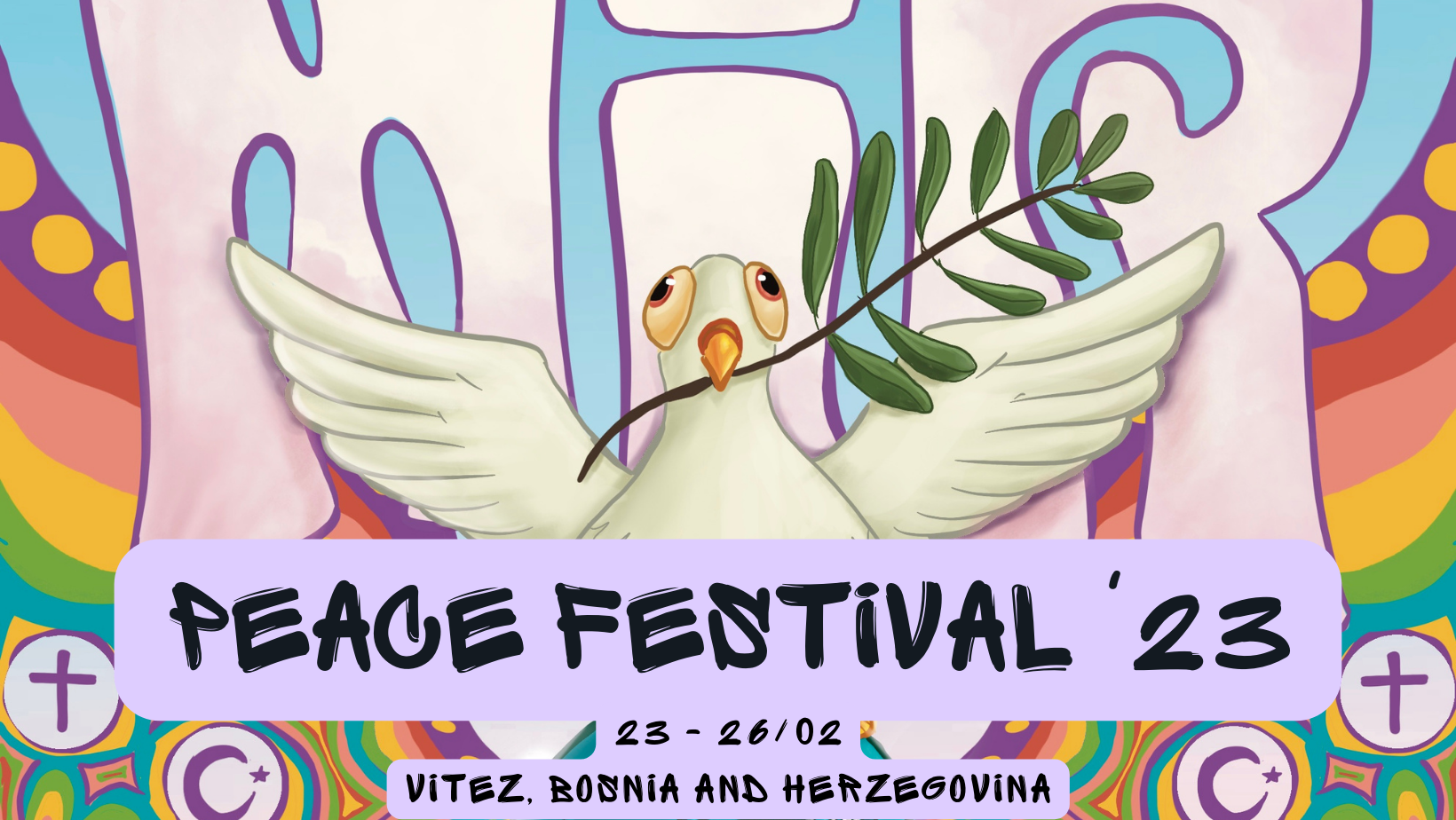
The Post-Conflict Research Center (PCRC) and Balkan Diskurs invite young people from Bosnia and Herzegovina to participate in the second edition of Peace Festival in Vitez from February 23 to 26, 2023.
The Peace Festival is a unique PCRC initiative which aims to strengthen the active engagement of young people and local communities in the process of building peace in Bosnia and Herzegovina through collaboration on art projects, activities and workshops dedicated to conflict transformation and social reconciliation. The first Peace Festival was organized in March 2022 and you can find more about last year’s program here. The participants’ impressions are available here.
This year’s Peace Festival includes a variety of activities for young people, including music concerts, theater performances, photo exhibitions, screenings of documentaries, and promotions of various peace activities of domestic and international organizations. The festival is held on the premises of Čardaci Ethno village in Vitez, on the banks of the Lašva River.
Selected participants are expected to be present during all days of the Festival. The costs of transportation, accommodation, and food will be paid by the organizers. If you are interested in participating, fill out the form that you can find here and send it to [email protected]. The deadline for applications to the Festival is February 10, 2023.





